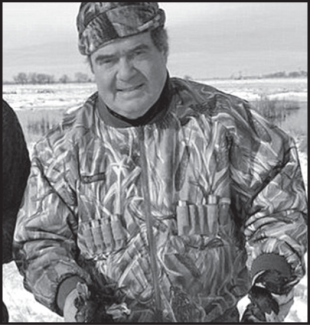Science: It’s Not About Rules and Process But, Rather, About Anarchy

Heated disputes happen all the time in science. But this one is different. It started in 2015, when Mark Jacobson and colleagues published an article in the Proceedings of the National Academy of Sciences proposing that the U.S. electric grid could be powered entirely by renewables. In 2017, Christopher Clack and colleagues published a rebuttal in PNAS, challenging key conclusions of Jacobson’s article. Late last year this disagreement took a qualitatively different course, when Jacobson sued the National Academy and Clack.
Jacobson’s attorneys dive headfirst into an immense pile of malarkey when they state, “His lawsuit does not seek to litigate science.” Most certainly, Jacobson does attempt to litigate science. In so doing, he stifles scientific communication and debate, thereby threatening the very core of the institution of science.
The law broadly recognizes the problems inherent in having lawyers resolve scientific disputes, and has evolved various devices to avoid this. Witness the “arbitrary and capricious” standard of review for administrative record cases under the Administrative Procedure Act, sharply limiting judicial review of science. Witness Federal Rule of Evidence 702, greatly circumscribing testimony by scientists and other experts, rather than having the court entertain all comers, and then sort it out. Witness legal rules that flatly prohibit scientific testimony in certain circumstances, for example, one cannot defend a robbery suspect by citing to science on the reliability of eyewitness testimony.
Science is complex, subtle, and technical. If you don’t know what you are doing, best to just avoid the science, and make a decision based on procedural violations, or other law. For instance, I like deadline lawsuits.
Jacobson’s attorneys dive in even deeper when they state that the goal of the lawsuit is “to respect and protect the process and rules that govern [science] and protect all of its stakeholders.” But no rules and processes govern science. In science, rules and processes are entirely secondary to facts and analysis and the truth. Yes, scientists endorse rules if they help uncover the truth, for example, rules preventing fraud, and requiring disclosure of conflict of interest. But even the scientific method itself is important only to the extent that it is in service to the ultimate goal of finding the truth.
Scientists abhor irrational or nonsensical rules that hinder uncovering the truth. The disdain many scientists have for the law arises from their perception that it is nothing but a bunch of nonsensical rules that obstruct getting at the truth.
Jacobson and his attorneys attempt to impose onto science the law’s worldview of rules, process, and procedure. Those rules get expressed as statute, regulations, case law, bar standards for the conduct of lawyers, and even informal and unwritten cultural practices. The power of the law is that many of its rules get imposed on most all institutions of society.
It is not just Jacobson’s attorneys. In Daubert and many other cases, judges become tourists romping across the scientific landscape. Therein the courts attempt to describe and analyze science by its procedures and rules and methods. That is how lawyers think. But it is not the essence of how scientists think. Scientists hate rules. In science, in contrast to the law, rules and methods are not an end to themselves.
Yes, PNAS does have internal rules and procedures for deciding what to publish, as do other journals. Yet journals break their rules all the time. If your scientific paper is unfairly rejected, your recourse is to publish it elsewhere. If it is unfairly criticized, your recourse is to publish a rebuttal. Attacking a journal and its editors for procedural violations, as Jacobson’s attorneys do, typically in science gets you exactly nowhere.
Rules often impede finding the truth, by constraining inquiry, or otherwise preventing disclosure of facts. Consider those rules that prevent consideration of science on the reliability of eyewitness testimony. As another example, rules on attorney-client privilege protect disclosure of Jacobson’s communications with his attorneys, which communications would be quite relevant to untangling the underlying substantive dispute here.
Legal rules pertaining to scientific evidence assist in resolving disputes precisely because they keep certain facts and analysis out of court, thereby helping bring legal disputes to quick resolutions. Vigorously pursuing facts and analysis wherever they lead is a never-ending process, antithetical to being quick and definite. Scientific uncertainty is ubiquitous precisely because science never gets to an endpoint. By contrast, the law desires definite endpoints.
The integrity of the scientific literature arises from the anarchy of a true free market of ideas, facts, and analysis. It is the height of arrogance for the law and lawyers to attempt to impose on science their worldview of rules, process, and procedure. Let science be science.
Science: it’s not about rules and process but, rather, about anarchy.




